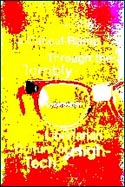BOOKS
The cyberfuture may not compute
Merle Rubin
Optimists point to the Internet as a tool that will aid the free flow of information, and hence, the spread of democratic values. But a closer look at the cultural values of the men and women who are creating this brave new high-tech world suggests it may be premature to rejoice.
In "Cyberselfish: A Critical Romp Through the Terribly Libertarian Culture of High-Tech," Paulina Borsook offers a savvy, sharply critical look at the attitudes and beliefs of the digerati. A former contributor to Wired magazine, Borsook knows this world well and has written a provocative and witty exposé that would be even funnier if it weren't also so scary.

|
CYBERSELFISH:
A CRITICAL ROMP THROUGH THE TERRIBLY LIBERTARIAN CULTURE OF HIGH-TECH
By Paulina Borsook
Public Affairs
288 pp., $24
|
The overwhelming majority of high-tech whiz-kids, Borsook finds, share a mindset so pervasive that many of them are not even aware of it. Borsook calls it "philosophical technolibertarianism." Its elements include a generalized scorn for government, a naive faith that the unregulated free market provides the solution to every conceivable problem, and neo-Darwinist belief in the triumph of the cybernetically fittest.
The technolibertarian mindset, Borsook argues, is also blind to aesthetic values, care-giving values, and the value of human subjectivity itself. Insofar as this dangerous brand of libertarianism may be among the values that the West is exporting to other cultures, the coming "New World Order" may be neither equitable, charitable, humane, or even very orderly.
Merle Rubin reviews books regularly for the Monitor.
Back to Top
|